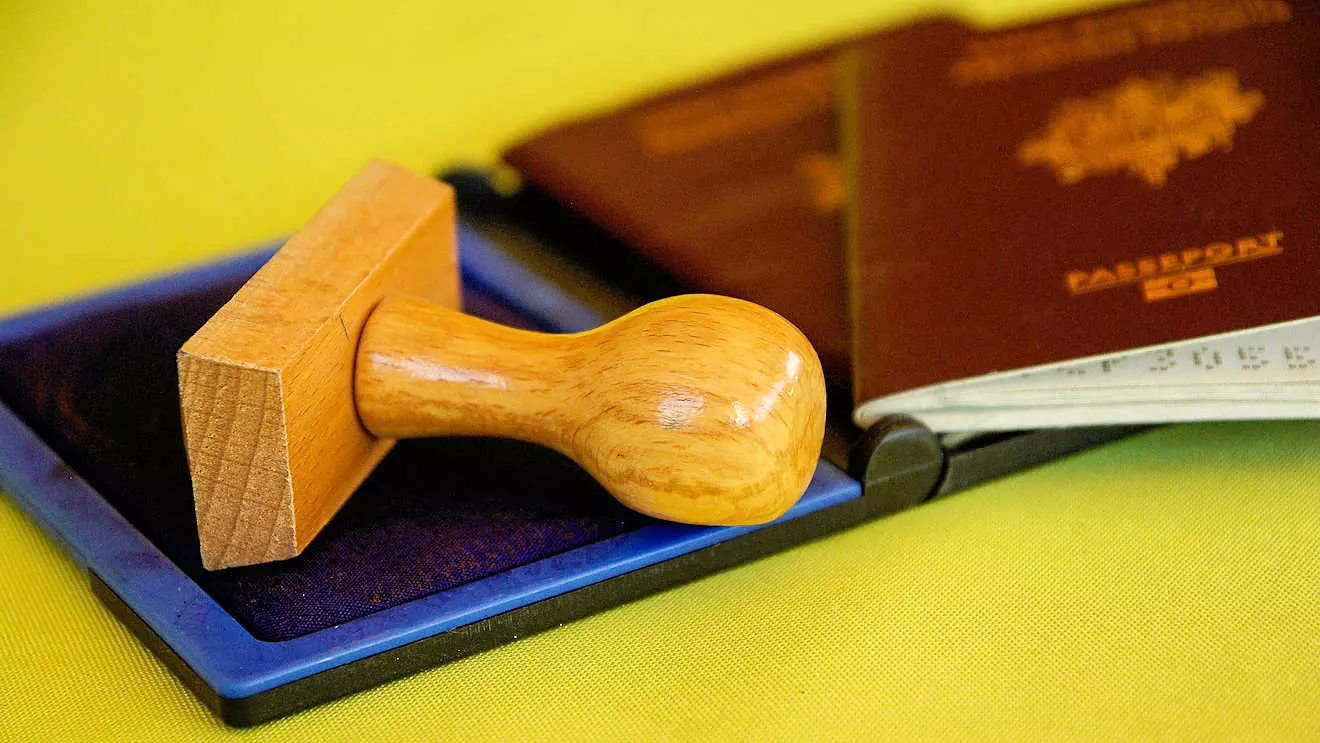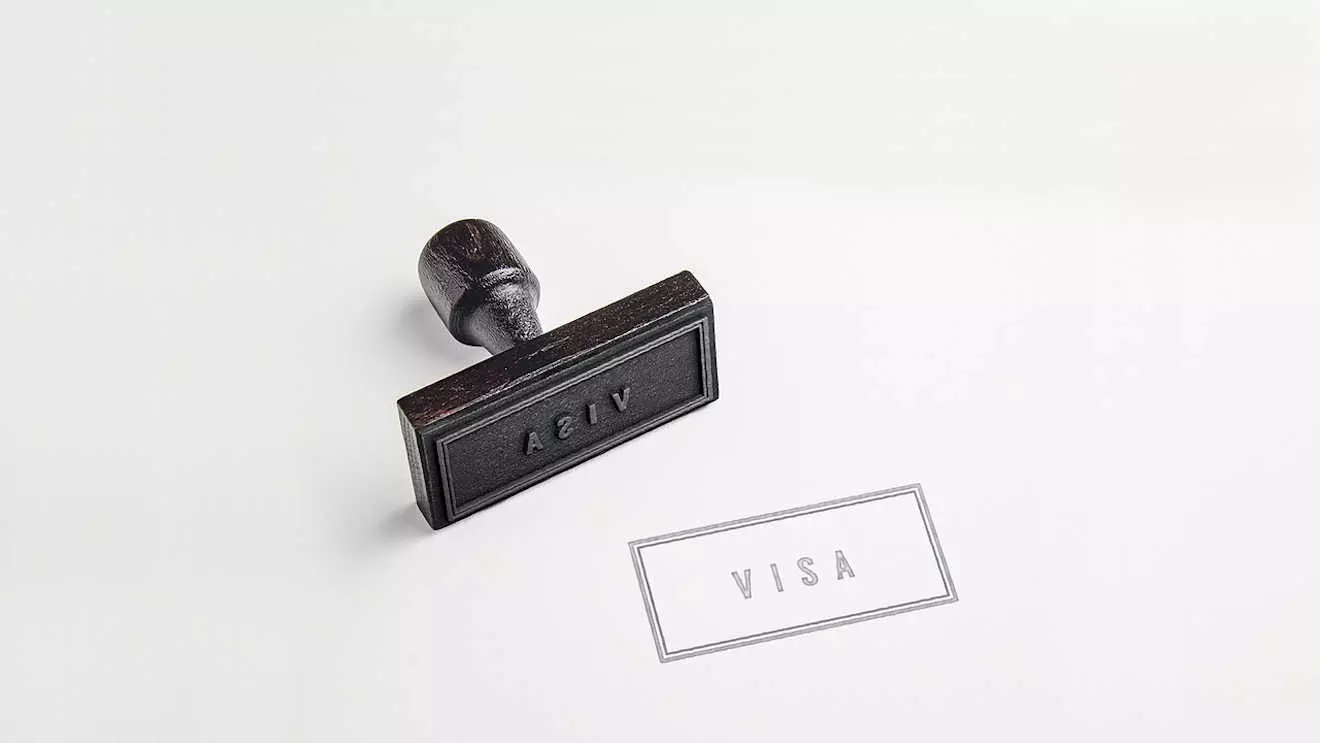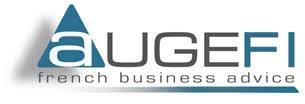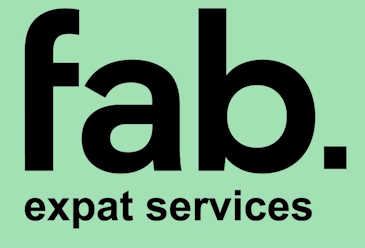
If you are looking to move to France for more than 90 days in a year, then you will need to apply for a Long Stay Visa. There are 4 main criteria that you need to meet to satisfy the requirements of you Long Stay Visa application.
- A valid passport (which must have at least 12-18 months before expiry) + passport photos
- Proof of Address (for your accommodation/residence in France)
- Proof that you have health insurance coverage
- Proof that you have sufficient financial resources
Normally, individuals who do not hold a passport of an EU-member country, will need to show that they have an annual/monthly income of more than the French minimum wage, which 01 1 January 2024 was €1,766.92 per month (Gross), around €1,400 per month (net). These figures are per person, so if you are a couple, each person will need to show that they have a net income of at least €1,766 per month (or a combined gross income of €3,500 per month per couple). If you have children, then you will need to show that you have income equivalent to 50% of the income requirement per child (in addition to your own income).
If you do not have a regular monthly income (from employment, a pension or from a business), then you will need to show that you have sufficient savings to support your self in France. I have not found any published guidance on what amount of savings are required as a substitute for regular monthly income for a French long stay visa, but I expect that you would need to show that you have at savings of least 2-3 years times the annual French minimum wage (so probably at least €60,000 per person).

Here we discuss, the minimum income requirements that you must meet to qualify for French Residency. We use the term French Residency to cover anybody looking to live in France for 6 months or more. France does not have a permanent residency system (like the American-style Green Card system or an Australian-style Permanent Residency).You can either live in France on a long stay visa (renewable annually); apply for a fixed length French Residency Permit (called a carte de sejour); or you can apply for French Nationality.
If you are looking to move to France permanently (or for a number of years), then you would normally:
- arrive in France on a Long Stay Visa
- then towards the end of your 1st year, apply for a carte de sejour
- then apply for French citizenship (if you decide that this is a permanent move)
We firstly cover the general income requirements that apply to individuals from a non-European (Third Country) who are looking to come to France for up to 90 days, 3-6 months and up to 12 months. We then discuss the income requirements and criteria for applying for French residency (and the different types of residence permit). Finally, we cover the situation for British Nationals applying for French Residency under the terms of the Brexit Withdrawal Agreement.
Moving to France: visas

Up to 90 days
If you are looking to live in France for up to 3 months and you are a citizen of the UK, Canada, New Zealand, United States, Australia, etc; then you do not need to apply for a visa. Instead, you will be issued a 90-day Schengen visa when you arrive at your first European airport or port. Your passport will be stamped and you will be allowed to travel within the 26 member contries of the Schengen zone.
You will however be required to testify that they have a minimum financial resources of €120 per person per day (or if you can show that you have already paid for your accommodation in France, then the amount is reduced to €65 per person per day).
After your 90 day stay in France, then you will not be permitted to return to France or any of the other 26 Schengen zone countries for the next 3 months.
If you are a citizen of certain countries, then you will need to apply for a Schengen Visa prior to your travel (a full list of these countries can be found here: Schengen Visa).

3-6 months
If you are not a citizen of a European Union member country, or an EEA country (Norway, Iceland and Liechtenstein) or Switzerland; and you wish to move to France for more than 90 days (but less than 6 months), then you will need to apply for one of two 'long stay' visas:
- Temporary long-stay visa - which is valid for 4-6 months and non-renewable
- Long Stay Visa - which is valid up to 12 months and is renewable
The application process for both types of Visas is virtually the same and the cost is similar (around €100 + processing fee of about €30). The income requirements for the Temporary 6 month visa are the same as for the 12 month Long Stay Visa (see below). The only difference I can see is that whilst both visas require you to show that you have health insurance that covers you in France, you are more likely to be able to use Travel Insurance and/or a Health Card from your home country (such as GHIC card from the UK) for the 6 month visa, whereas for the 12 month visa you will probably need to arrange some additional private medical insurance.

Live in France for up to 12 months
If you are not a citizen of a European Union member country, or an EEA country (Norway, Iceland and Liechtenstein) or Switzerland; and you wish to move to France for more than 90 days and up to 12 months, then you must apply for a Long term Visa.
You will be unable to apply for the Long Stay Visa for France until 3 months prior to your planned arrival date in France. You apply for the Long Stay Visa at the French Consulate of your home country. The application process is handled online, but you may be asked to attend an interview in person at the French Consulate.
The Long stay visa allows you to exit and return to France as often as your wish and you can also travel to other European countries during your stay in France without needing any additional visa. But your visits to other European countries cannot exceed a cumulative total of 90 days in any 6 month period.
France long stay visa income requirement

To apply for a long stay visa for France, you must be able to prove that you have sufficient financial resources i.e. the equivalent of the minimum legal wage in France for a full-time worker.
The minimum wage in France is commonly referred to as the SMIC (salaire minimum de croissance). From 1 January 2024, the minimum wage in France for an adult aged over 23 years is €1,766.92 per month (gross), which equates to around €1,400 per month Net, after income tax and social contributions. This represents and annual gross salary of €21,192.
The term 'income' is quite a broad category. So it covers both employment income and business income (if you are self-employed). It also includes retirment pension income and income from Trust funds. However, savings and investments are not technically classed as income.
The other consideration, is that the income not only needs to be sufficient, but you also need to prove that it is stable and consistent. So an Employment contract will show that the income is stable. Likewise, producing 2 years business accounts will also show a level of stability (especially if business revenues fluctuate). But what happens if you are moving to France and giving up your employment? What happens if your business is not portable?
In situations where an applicant is unable to demonstrate both sufficient and or stable income, applicants can use savings as a substitue for income. No figures are provided by the French Consulate service of what level of savings can be taken into account, but it is likely to be at least 2-3 times the annual minimum income requirement (so €1,766 per month x 12 months x 3 years = €63,576). It should also be noted that the savings will need to be fairly liquid - so money in a bank account or investment account will qualify, but stocks and shares or property holidings may not be considered.
The 12 month Long stay visa is a non-working visa. Normally, you will not be allowed to become an employee in France or set up a business in France during this initial 12 month period. You can of course carry on business activities outside of France or return to your home country to work. Remote-working is a bit of a grey area. Basically, France will want to tax you or your employer if they discover that you are working full-time whilst being based in France. It is also likely that they will cancel your visa. France doesn't currently have a Digital Nomad type visa, so that is not a route you can take. Now the question is always going to be: How would the French tax authorities or immigration service ever find out? I think that it would be very unlikely. But, what you don't want to do is to jeopardize your stay or even worse, be tripped up at the visa application stage. So I always advise clients to say to the French Consulate that you will be living in France, but returning to your home country to work periodically.
Note: it is possible for non-EU citizens to apply for a French residency permit straight away and bypass the need to obtain an initial 12 month Long Stay Visa. So, for example, you can instead apply for a Long Term Visa used as Residence Permit (VLS-TS) and select the category most appropriate to your circumstance (student, self-employed, retiree, looking for work, joining an EU citizen family member, etc). But my experience is that the process is much more complicated and you might need the assistance of an Immigration Advisor. So it is for this reason that I always advise clients to firstly apply for a 12 month non-working Long Stay Visa and then once you are established in France, apply for a carte de sejour.
Extending your stay in France for more than one year

I always advise our clients to initially move to France on a 12 month Long Stay Visa. It may have always been your dream to move to France permanently, but it is always a risk to move lock, stock and barrel to a country without first experiencing it first hand. I do encounter customers who are resolute that there is " . . . no going back . . .". But, you will never know if your personal cicumstances change, the cultural differences are too great, or simply, that the reality doesn't match up to the dream. It is far better to come to France for a year, get a good feel for the country (on the inside) and then decide if you wish to make France your permanent home.
After you have arrived in France and you have decided that you wish to stay longer than the 12 months, then you can apply for a residence permit (carte de sejour). You can apply for the carte de sejour whilst you are in France and you are able to start the application process within two months of the end of your long-stay visa (you must apply before your visa expires, otherwise you will need to exit France and start the application process from abroad).
Like the initial Long Stay Visa process, there is an online application process for the carte de sejour. It is likely that you will also be asked to attend a meeting at your local Prefecture for the department where you are living in France. This meeting will be to discuss your documentation and the reasons for your application.
Once issued, the carte de sejour typically lasts for between 1-4 years and can be renewed. After holding a carte de sejour for 3 years, you may then be eligible to apply for a 10 year Carte de Résident.
There are different categories of the carte de sejour in France:
- Student - in addition to the relevant paperwork from the French education institue, applicants also have to demonstrate a minimum income of €615 per month, which can be shown with a bank statement, a guarantor's letter or a notice of funding from a loan, scholarship or grant.
- Temporary Worker or Posted Foreign Worker - involving assignments lasting between 3 to 12 months
- Employee - employed under a French employment contract
- Research Scientist - issued to foreigners undertaking research work or teaching at university level
- Retiree/Economically inactive
- Self-employed or Professional
- Talent Passport
Retiree/Economically inactive

For individuals who are not looking to work in France, the visa application process is quite straightforward. The main application process involves you providing the following information:
- Proof of medical insurance - either private medical insurance or PUMa registration
- Proof of accommodation in France - usually for the same duration of your visa
- Proof of legal status in your home country
- Proof of means of income - you need to demonstrate that you have sufficient income to meet the French minimum wage level (although savings can be taken into account in the absence of sufficient pension or other income).
- Letter promising not to engage in employment in France
Self Employed or Professional status

If you want to move to France and to set up a new business or work within you profession, then you are able to apply for a special type of carte de sejour which will issued under the category “entrepreneur/profession libérale” (Self-employed in regulated ‘liberal’ profession).
If you are planning on setting up a new business in France, then you must be able to demonstrate the economic viability of your project. So this would entail providing a detailed business plan with financial projections and/or demonstrating that you have sufficient savings or other income sources to support you.
 We work in France with an International Accountancy firm, AUGEFI. The company has a specialist division which helps ex-Pats to set up business in France and to assist individuals looking to invest in France. Jennifer Goube, is a Partner of Augefi. She explains that when individuals are looking to apply for a self-employed visa, especially where this involves buying or establishing a new business in France, certain requirements need to be considered. She states that:
We work in France with an International Accountancy firm, AUGEFI. The company has a specialist division which helps ex-Pats to set up business in France and to assist individuals looking to invest in France. Jennifer Goube, is a Partner of Augefi. She explains that when individuals are looking to apply for a self-employed visa, especially where this involves buying or establishing a new business in France, certain requirements need to be considered. She states that:
if the business is in an existing field such as a Gite business or Internet Marketing, then it is often a good idea for the business plan to highlight the average earnings for comparable businesses, ideally supplied by a trade body or a French Government/European Union statistics organisation. If it is an entirely new start-up business, then the financial projections will need to encompass some market analysis and a detailed sales plan (to back up the income projection figures).
If you want to move to France and continue in your exisiting self-employed profession (either working in France or working abroad from a French base), then you must be able to prove that you have sufficient financial resources i.e. the equivalent of the minimum legal wage in France for a full-time worker.
This category of self-employed profession is is termed in France a 'profession libéral '. Generally, it involves mainly service-based occupations. Sometimes these professions involve a minimum qualification requirement in order to practice and may be subject to a professional code of conduct. Typical 'professions' include: medical occupations (doctors, dentists, midwives, pharmacists, veterinary surgeons, nurses, physiotherapists), law related professions (lawyers, auctioneers, bailiffs, notaries) and technical professions (land surveyors, architects, chartered accountants). The French Government publish a list of these regulated occupations which are overseen by an administrative body called ENIC-NARIC France (ENIC-NARIC professions règlementées).
In addition to this, there are a number of unregulated professions which may or may not have a qualification requirement, but generally require a certain amount of expertise or specialist knowledge and require some track record and experience. This may include IT workers, designers, writers, trainers, translators and private tutors.
Source: French Property News.
If you will be setting up an independent sole trader company in one of these profession libéral activities, then in addition to satisfying the minimum earnings thresholds, you will also need to prove that you meet the professional requirements in terms of qualifications/diplomas as well as any other conditions. France as a country takes much more seriously the concept of 'professionalism' than other countries. It is not simply the case that you can open up an office and pin a sign to the door. You really need to prove your competence to trade.
 If you require assistance on setting up a business in France or you would like to discuss the requirements relating to a self-employed visa or Talent Passport in France, then please contact Jennifer Goube, Partner on +33 467 186 201 or by email at
If you require assistance on setting up a business in France or you would like to discuss the requirements relating to a self-employed visa or Talent Passport in France, then please contact Jennifer Goube, Partner on +33 467 186 201 or by email at
Talent Passport

In addition to the self employed or professional carte de sejour, France also has a special category of Visa for highly-qualified employees and Entrepreneurs. This category is referred to as a 'Talent Passport' and it relates to well-respected Scientists, Engineers, Artists, Designers, Entrepreneurs, Tech workers, Business investors, etc.
 Fabien Pelissier who runs a French Relocation agency called Fab Expat Services, explains that the legal definition of who is eligible to apply for Talent category of Long Stay Visa is deliberately quite vague and unrestricted. When the scheme was first introduced the main defining concept was that applicants would be:
Fabien Pelissier who runs a French Relocation agency called Fab Expat Services, explains that the legal definition of who is eligible to apply for Talent category of Long Stay Visa is deliberately quite vague and unrestricted. When the scheme was first introduced the main defining concept was that applicants would be:
“persons that are likely to make a significant or lasting contribution through their skills and talents in the development of French economy, as well as its culture, science, sports, directly or indirectly.”
The main difference between the 'Talent Passport' and the Self-employed/Professional visa/residency category, is that it is:
- issued for a longer period (up to 4 years)
- the permit holder can bring his/her family
- the Spouse and any children over the age of 18 years, are also permitted to work in France
Usually, the 'Talent Passport' is issued to individuals who have been issued with a French employment contract, normally with a remuneration exceeding the average for that particular profession or activity (at least 1.5 times the average gross annual salary, which in France is set at a minimum annual gross salary threshold at €53,836). The job description would also normally limit the pool of suitable applicants to a very small number.
The 'Talent Passport' can also apply to Company Directors and start-up Entrepreneurs. Whilst there are no minimum earnings requirements for these types of individuals, it is generally expected that they are financially self-supported.
Post Brexit French Residency: sufficient financial resources

Following Brexit, new rules apply to British nationals looking to move to France or retire to France. Whilst there are some minor concessions, effectively the Brexit Withdrawal Agreement just confirms that UK nationals are now treated the same as other Third Country Nationals (such as Americans, Canadians, Australians, New Zealanders, etc). So British nationals do not need to apply for a Schengen visa if they are staying less than 90 days in France (but as we have covered above, a lot of other nationals already had this entitlement).
To move to France from the UK, British Nationals now need to apply for a Long Stay Visa for France. The minimum monthly earnings requirements has therefore increased from nothing to €1,400 net income per month for a single person and around €3,500 gross income per month for a couple. For a British family moving to France with 3 children, they will now have to show a gross annual income of around €60,000.
The new minimum income requirements vary according to whether you are working or you are classed as economically inactive (retirees, non-working people, students, etc). It will also vary according to how old you are and whether you have any dependents.
If a UK National does not have a regular income (such as a pension or salary), then they will be able to use savings as a substitue for income. No figures are provided by the French Consulate service of what level of savings can be taken into account, but it is likely to be at least 2-3 times the annual minimum income requirement (so around €62,892). It should also be noted that the savings will need to be fairly liquid - so money in a bank account or investment account will qualify, but stocks and shares or property holidings may not be considered.
Thinking of moving to France ?
If you are planning on moving to France, then the following articles provide more information on aplying for a long stay visa for France, retiring in France, opening a bank account, setting up health care in France and the best regions in France to live.
Discover how much money you will need to budget for moving to France and the general cost of living in France in 2024.
|
France regularly features in the Top 10 list of the best countries to move to. Here we analyse where are the 10 best regions to live, work and retire in France. |
If you are planning on moving to France and to live here for more than 3 months at a time, then it is a legal requirement for you to have health insurance in place.
| How to open a bank account in France One of the first jobs that you need to do when you are moving to France is to open a French bank account. Everything in France is linked to having a French bank account.
|
Discover the best options for finding properties to rent in France long term and what information you will need to provide to sign a long term lease.
|
Discover how much it will cost to rent a house or apartment in France long term. These are the average house rental prices in France for a long term rentals for 2024.
|
 If you need assistance with planning your move to France and getting set up when you arrive, we are happy to recommend the services of FAB EXPAT SERVICES, a French Relocation & Insurance agency run by Fabien Pelissier. Fabien's team and network of external consultants, can help you with everything from applying for long stay visas for France, setting up a business in France, opening bank accounts, arranging health insurance in France, organising car & home insurance and completing your French tax return.
If you need assistance with planning your move to France and getting set up when you arrive, we are happy to recommend the services of FAB EXPAT SERVICES, a French Relocation & Insurance agency run by Fabien Pelissier. Fabien's team and network of external consultants, can help you with everything from applying for long stay visas for France, setting up a business in France, opening bank accounts, arranging health insurance in France, organising car & home insurance and completing your French tax return.
Fab Expat Services can be contacted by email at: Fab Insurance by phone (English speaking line): (+33) 05 35 65 50 50 and through Facebook: Fab Expat Services
You can also book a personal 30 minute telephone consultation with Fabien Pelissier to answer all your questions in relation to your visa application and relocation to France. Visit Visa & Relocation Consultation to reserve a date and time for your consultation.


















